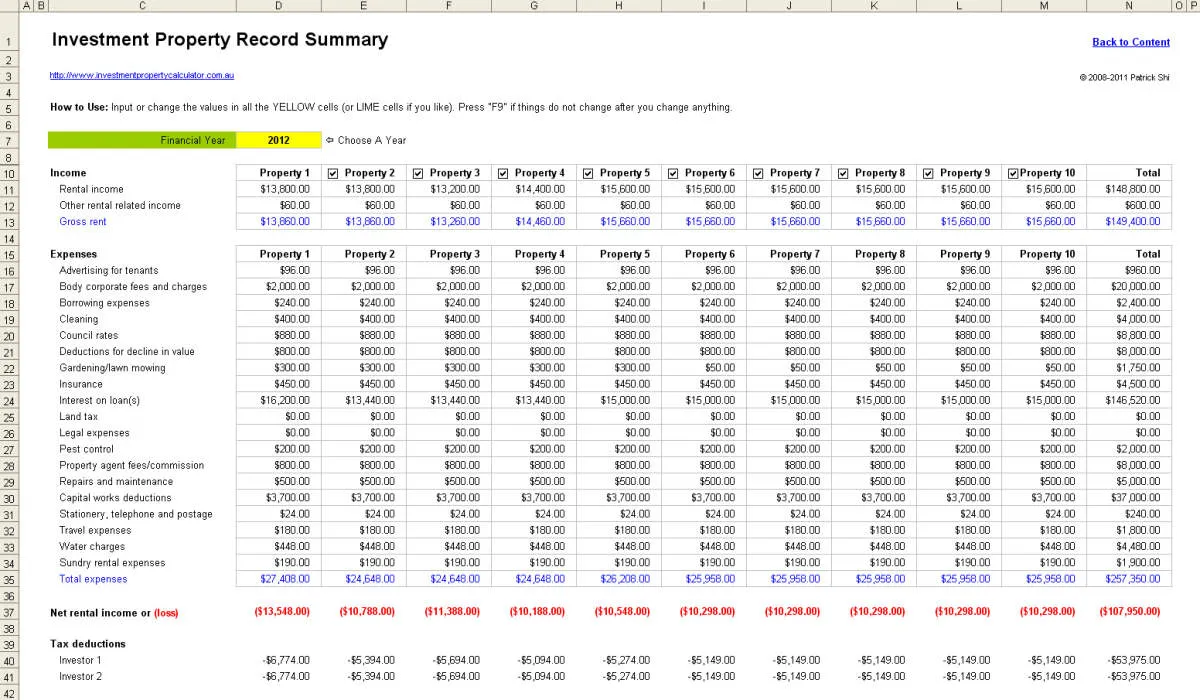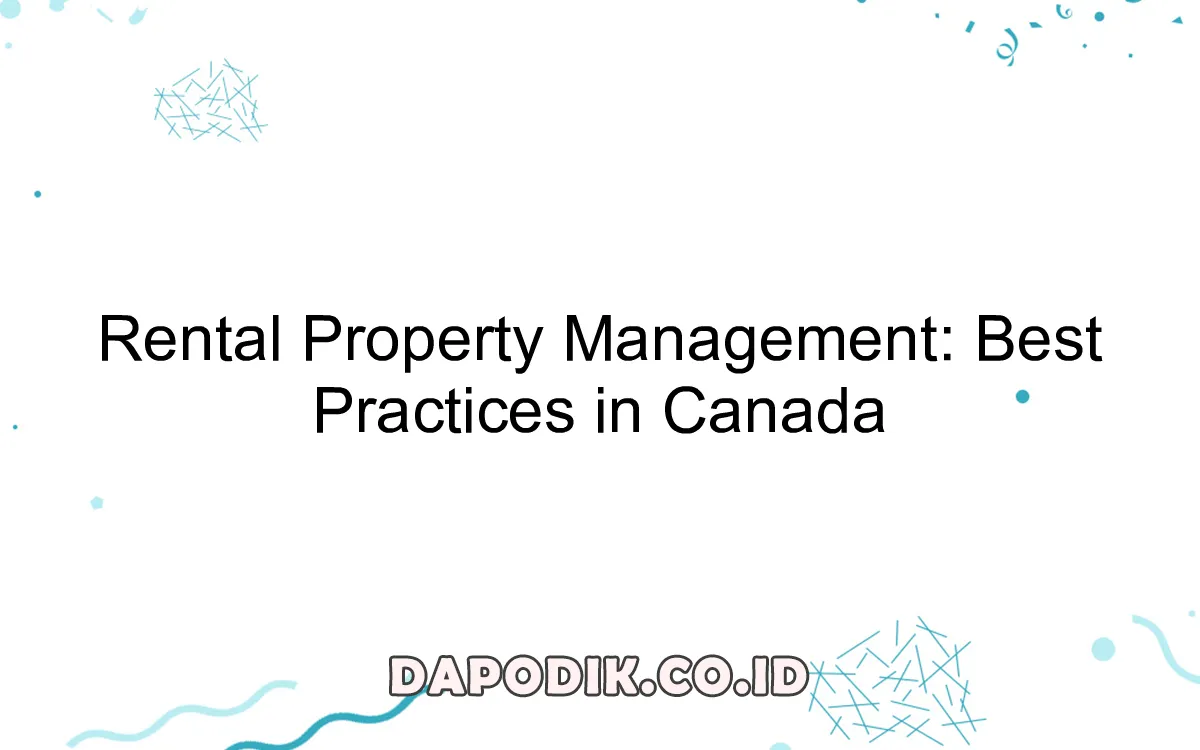Rental Property Management: Best Practices in Canada
Rental property management in Canada requires adherence to best practices to ensure efficient and effective operations. From tenant screening and lease agreements to property maintenance and financial management, this article explores the key strategies and tips for successful rental property management in Canada.
Finding Quality Tenants
In the realm of rental property management, finding quality tenants is crucial to ensure a positive and hassle-free experience for both the landlord and the tenant. Whether you are a landlord or a property manager in Canada, implementing the best practices below can greatly increase the chances of securing reliable tenants for your rental properties.
Create a Detailed and Attractive Rental Listing
The first step in attracting quality tenants is to create a detailed and attractive rental listing. Include comprehensive information about the property, such as the number of bedrooms and bathrooms, amenities, parking availability, and the rental price. Use high-quality photos to showcase the property’s features. A well-crafted listing will catch the attention of potential tenants who are serious about finding a suitable rental.
Screen Prospective Tenants
Screening prospective tenants thoroughly is essential to identify reliable individuals who will take care of your property and pay rent on time. Conduct background checks, verify employment and income, and contact their previous landlords for references. This will give you an idea of their rental history and their ability to fulfill their financial obligations.
Set Clear Rental Criteria
Set clear rental criteria to filter out unsuitable applicants. Determine the desired credit score, income level, and rental history suitable for your property. By communicating these criteria to potential tenants upfront, you will save time and effort by only focusing on applicants who meet your requirements.
Advertise Strategically
Advertise your rental property strategically to reach the right audience. Utilize online platforms, social media, and local rental listing websites. Consider using targeted keywords in your ads to attract tenants who are specifically searching for properties similar to yours. This will increase the chances of finding prospective tenants who are genuinely interested.
Provide High-Quality Customer Service
Once you have found quality tenants, it is essential to provide exceptional customer service. Respond promptly to their inquiries, address maintenance issues promptly, and ensure open lines of communication throughout the tenancy period. Happy tenants are more likely to stay longer, take care of the property, and recommend it to others.
Offer Incentives for Renewals
To retain quality tenants, consider offering incentives for lease renewals. This can include a rent freeze, small property upgrades, or flexible lease terms. By rewarding good tenants for their loyalty, you increase the chances of them staying longer, reducing the turnover rate, and maintaining a steady rental income.
Conduct Regular Property Inspections
To ensure tenants are maintaining the property properly, conduct regular inspections. This allows you to identify any potential issues early on, address them promptly, and maintain the overall condition of the property.
Enforce Lease Agreements
Consistently enforce lease agreements to ensure tenants adhere to the terms and conditions. This includes timely rent collection, addressing rule violations, and taking appropriate action when necessary. By enforcing lease agreements, you establish a sense of professionalism and maintain a harmonious landlord-tenant relationship.
Stay Updated with Rental Regulations
Keep yourself updated with rental regulations in Canada to ensure compliance with legal requirements. Familiarize yourself with tenant rights and obligations, fair housing laws, and any changes in provincial or municipal regulations. Staying informed helps you avoid potential legal issues and navigate rental property management smoothly.
Effective Property Marketing Strategies

Introduction
In this article, we will explore the best rental property management practices in Canada, specifically focusing on effective property marketing strategies.
1. Utilizing Online Rental Platforms
With the advancement of technology, online rental platforms have become invaluable tools for property managers. Platforms like Craigslist, Kijiji, and Airbnb offer a wide reach to potential tenants. Ensure your property listings are detailed, engaging, and accompanied by high-quality photos to attract more interest.
2. Engaging Social Media Presence
In today’s digital age, social media plays a crucial role in marketing. Create accounts on popular platforms such as Facebook, Instagram, and Twitter to promote your rental properties. Regularly post updates, photos, and even virtual tours to showcase the unique features of your properties and engage with potential tenants.
3. Targeted Advertising
Consider using targeted advertising methods to reach your desired audience. Utilize pay-per-click (PPC) advertising on platforms like Google AdWords or social media ads to specifically target renters in your desired location or demographic. This targeted approach can increase the chances of finding suitable tenants quickly.
4. Professional Photography and Virtual Tours
Invest in professional photography services to capture the best angles of your rental properties. High-quality photos enhance the listing’s appeal and attract more prospective tenants. Additionally, consider creating virtual tours using 3D imaging technology or videos to provide potential renters with an immersive experience of the property.
5. Word-of-Mouth Referrals
Tap into the power of word-of-mouth referrals by incentivizing your existing tenants to recommend your properties to their friends and acquaintances. Offering referral bonuses, discounts, or other incentives can encourage tenants to spread the word about your rental properties, expanding your potential tenant pool.
6. Effective Property Descriptions
An effective property description is crucial for attracting the right tenants. Highlight the key features, amenities, and unique selling points of your properties. Emphasize important details such as proximity to schools, transportation, and popular amenities to showcase the property’s value to potential renters.
7. Regularly Updating and Refreshing Listings
To maintain visibility and engagement, regularly update and refresh your rental property listings. Remove or update outdated listings and ensure all information provided is accurate and up-to-date. This practice ensures that potential tenants are not deterred by old or incorrect information.
Conclusion
By implementing these effective property marketing strategies, rental property managers in Canada can increase their chances of finding suitable tenants and maximizing occupancy rates. Stay proactive, adapt to changing trends, and utilize various marketing tools available to reach a wider audience and showcase your rental properties to their fullest potential.
Essential Maintenance and Repairs
As a rental property manager in Canada, ensuring proper maintenance and repairs is crucial to provide a positive experience for both tenants and property owners. This article discusses some best practices to follow when it comes to maintaining and repairing rental properties.
Regular Inspections
Performing regular inspections is key to identifying and addressing maintenance issues before they become major problems. Schedule inspections on a periodic basis to check for any signs of wear and tear, damage, or issues that need immediate attention. This proactive approach can help minimize repair costs and tenant complaints.
Prompt Response
When a tenant reports a maintenance issue, it is important to respond promptly. Address the concern as soon as possible and keep the tenant informed about the progress. Timely repairs not only satisfy the tenant’s needs but also prevent further damage and potential liability issues.
Quality Craftsmanship
When hiring contractors or maintenance personnel, prioritize quality craftsmanship. Ensure that they have the necessary skills and experience to handle the specific repairs required. Utilizing reliable professionals can save you time and money in the long run and result in satisfactory outcomes.
Preventive Maintenance
Implementing preventive maintenance measures can help prevent costly repairs down the line. Regularly service heating, ventilation, and air conditioning (HVAC) systems, inspect plumbing and electrical systems, and maintain landscaping to ensure the property remains in good condition.
Clear Communication
Communication is crucial in rental property management, especially when it comes to maintenance and repairs. Clearly communicate expectations, guidelines, and procedures to the tenants. Provide them with reliable contact information they can use to report any issues or emergencies promptly.
Record Keeping
Maintain a detailed record of all maintenance and repair activities, including dates, descriptions, and costs. This documentation can be valuable for future reference, financial reporting, and handling any disputes that may arise regarding responsibility for repairs.
Budgeting and Planning
Allocate a portion of the rental income for maintenance and repairs. Having a well-planned budget ensures that there are sufficient funds available to address any unexpected repairs or ongoing maintenance needs. Regularly review the budget and adjust as necessary to meet the property’s requirements.
Tenant Education
Educate tenants about their responsibilities when it comes to maintenance and repairs. Inform them about basic upkeep tasks they should perform, such as replacing light bulbs, regular cleaning, and avoiding actions that could cause damage to the property. Empowering tenants with this knowledge fosters a sense of responsibility and can help reduce the occurrence of avoidable repairs.
Conclusion
Rental property management in Canada requires adherence to best practices to ensure the smooth running of operations. Key considerations include thorough screening of tenants, proactive maintenance and repairs, effective communication, and compliance with local regulations. By implementing these practices, property owners can maximize profitability and maintain positive tenant relationships.

Posting Komentar untuk "Rental Property Management: Best Practices in Canada"
Gambar ataupun video yang ada di situs ini terkadang berasal dari berbagai sumber media lain. Hak Cipta sepenuhnya dipegang oleh sumber tersebut.